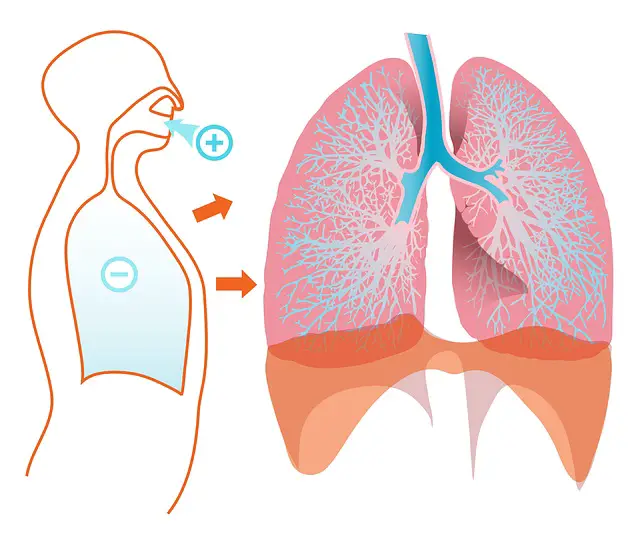An asthma attack is unpredictable. It may be silent during sleep or it can be breathtaking in the day.(1)
We see people struggling with asthma, especially in winters. What causes them to suffer more? Is asthma seasonal? Cold weather brings with it allergies and infections.(2)
These can be more than harmful for an asthmatic patient. When the patient is aware that he/she is prone to the asthma attack in this season, it is important to take some precautions to keep them away.
Dealing With Asthma in Weather
It is not only asthma but the whole body is vulnerable to infections in the winter. The respiratory tract has a protective measure in the form of mucus.
Mucous layer lining the respiratory system helps to protect against infection, but in cold weather, the thickness of this mucus layer diminishes.
Thus the filtering property of mucus reduces and the disease causing microorganisms or allergens get a gateway into the body.(3)
- So do not breathe the cold air, instead set the air conditioner to give out a warm air.
- And if you have to go out, cover the nose and mouth with a thin cotton cloth or cold weather masks.
If you think staying at home will keep you away from an asthma trigger, you are wrong. Are you so sure that allergens can’t make their way into your home?
- Keep the doors and windows closed, switch on the air conditioner and set it at warm temperature for better ventilation
- Regular vacuuming will evade the allergens like molds, dust mites, dander of your lovable pet, and other particles that can be a good germ breeding site
- Replacing the carpets with the clean ones timely keeps the allergens away. Paint on your walls may emanate harmful gasses
Ensure the paints used in your home are of low VOC grade. Keep the room well ventilated.
In case you are storing these paints for some reason, it is not good for you, so please keep them away from your home say in the garage or garden.
When you rely on the air conditioner, ensure that it provides the air of set temperature, and humidity.
Also, note that central heating systems are known for releasing dangerous gasses such as nitrogen dioxide and carbon monoxide.
When these gasses can make you vulnerable to an attack, they also give rise to serious respiratory problems.
Make sure the materials in the kitchen are also free of the triggers. Many of the patients do not know that Teflon coated or non-stick cookware emits toxic fumes at temperatures greater than 2600C.(4)
The ovens and hobs are also not free from danger.
Conclusion
As an asthmatic patient, your life doesn’t stop you from moving on.
Don’t bind yourself within the 4 walls. You are free to travel and mingle with everyone when you take the necessary precautions.
When you have to travel, ensure you have all your medications handy in surplus amounts.
Avoid highly polluted destinations, skydiving, scuba diving and other adventurous activities. Keep it light and simple.
Researches and references
(1) http://acaai.org/asthma/about
(2) http://www.webmd.com/asthma/features/breathe-easy-winter-asthma-advice
(3) https://en.wikipedia.org/wiki/Mucus
(4) http://www.ewg.org/research/healthy-home-tips/tip-6-skip-non-stick-avoid-dangers-teflon
Leave Feedback: Was this article helpful?

